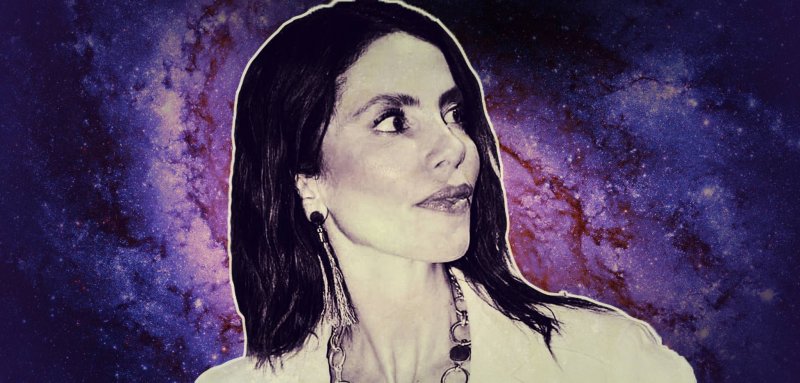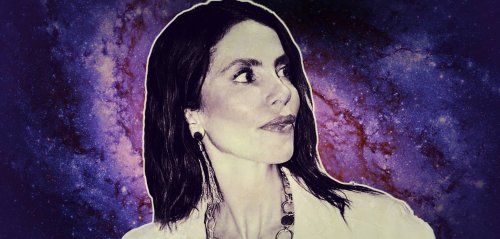“On this land, there is what makes life worth living,” these words by famed Palestinian poet Mahmoud Darwish may be the main driver behind the solid will of astrophysicist Dr. Cyrine Nehmé. Her strong resolve and determination made her delve into the secrets of this universe, in spite of all the obstacles she faced.
Whoever meets this “vibrant” woman, whose eyes sparkle with love, passion and madness, is well aware that what Nehmé has accomplished in scientific achievements for the benefit of Arab women, is only a small part of her ambitions — ambitions that reach far beyond the boundaries of earth and transcend geographical barriers... Big dreams connected to earth and still reach the sky, and goals that do not know respite as long as her heart beats with love for life and her mind roams the horizon in search of satisfactory answers about this universe and its greatness.
A daughter of the Lebanese Chouf region, Cyrine was able to break the stereotypes plaguing Arab women, taking up a profession that had always been considered exclusive to men. She dove into the science of space, and through her efforts and perseverance, she achieved her dream of working with NASA. The United Nations has also recently appointed her as the national coordinator for World Space Week, a major event that sees more than 90 countries from around the world participating.
From her passion for the universe and its secrets, to talking about the negative views and the unjust rulings practiced by toxic masculine thinking against women, as well as addressing issues like sex and alcohol in space... Here is the interview that Raseef22 conducted/carried out with Dr. Cyrine Nehmé.
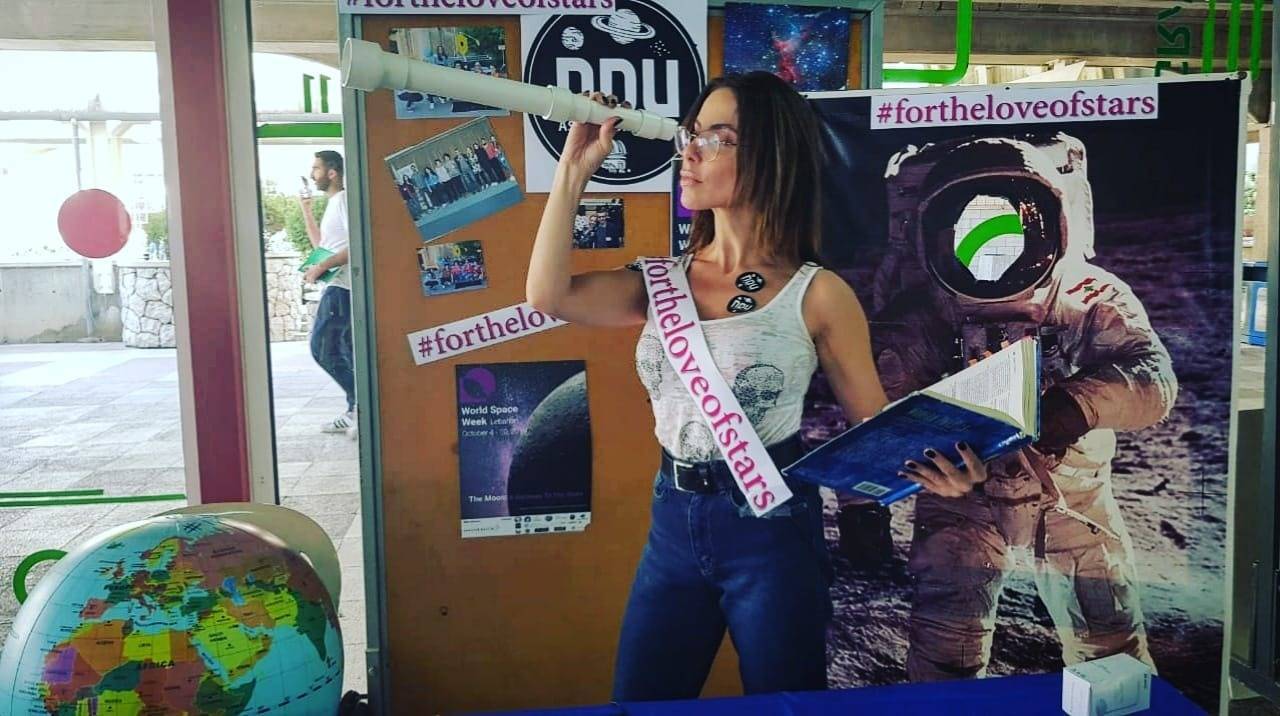
For starters/first, tell us more about your passion for astrophysics and why you chose this field over others?
I consider myself fortunate to have found my calling in life at such a young age.
When I was 8, a friend of my father’s gifted me a telescope that allowed me to see the rings of the planet Saturn. That was the first time that I saw the sky like this, and that was when I realized that I wanted to experience the taste of freedom that this planet lives in and discover its secrets and stillness. So I decided to delve into the universe and study it. An image of the science of space began to take root in my mind’s eye. And the passion for this magical world was growing little by little, especially when I would go deeper into research and touch the infinite greatness of this universe. In the end, how can I not fall in love with this field while we as human beings embody the universe and the universe embodies us?
Where did you pursue your education? Which country embraced your dreams and ambitions?
I completed my education in a school in Beirut, and at the age of 15, I topped my class, got a scholarship, and traveled to France — specifically to Lyon — where I received lessons in Maths spé. Then I returned to Beirut, where I completed my university studies before leaving again for France to get a PhD doctorate in Astrophysics, and today I work as a university professor in Lebanon in addition to collaborating with NASA.
How would you rate your experience working with NASA?
When I finished my PhD, I got into the French Alternative Energies and Atomic Energy Commission (CEA - Commissariat à l'énergie atomique et aux énergies alternatives). There, we were working on developing an infrared camera for the James Webb Space Telescope set to launch in 2021 with the purpose of space exploration and to search for life beyond our planet, and then my dream came true and I worked with NASA. The experience was extremely fruitful, on both the professional and personal level, especially since the agency respects everyone who works with it regardless of their gender, nationality, appearance, and experience...
Usually, those who work and succeed abroad find it difficult to return to their homeland... What prompted you to return to Lebanon once again?
When I announced my return to Lebanon and decided to terminate the contract with the European Space Agency, everyone around me was perplexed by this sudden decision, but in truth, I decided to return in order to revive space science in Lebanon by teaching this subject in universities, and make the current generation learn more about the importance of space.
Did you feel remorse after returning from abroad?
I do not deny that the feeling of regret has dominated my mind recently. Even though I am an optimistic and positive person, I have noticed how some people in Lebanon set out to destroy a successful person, especially if he isn’t backed by any official authority... “I humbly say that the country doesn’t really deserve me”.
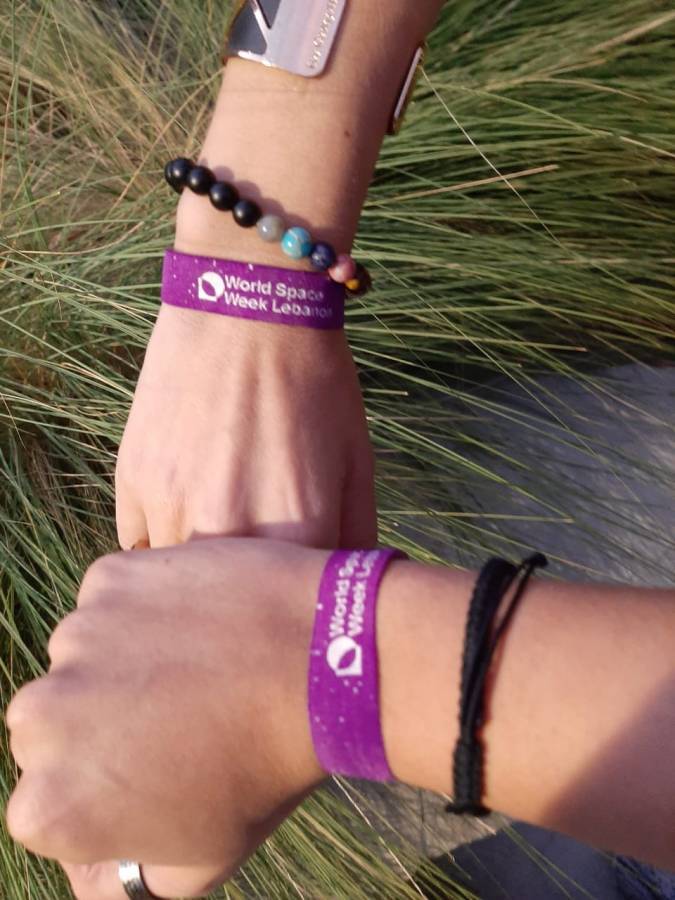
What difficulties did you face as an Arab woman working in the field of space science?
Abroad, I did not encounter any problems of the like. Rather, I was treated as a human being first, instead of just some “female body”, but after I came back to Lebanon I began to notice the negative views and preconceived notions that plague women, highlighted by actions like belittling them, suppressing their ambitions and claiming that they are unable to realize any achievements, or mocking them by saying that their hormones control their behavior... Unfortunately, in our Arab world, a woman is treated on the basis that she is a “second-class” citizen.
From your words, some may think that you are resentful of men, is this true?
Not at all, I am not an “enemy of men”, rather, I respect and appreciate them, but in our eastern society I am — daily and continuously — fighting the backwards male chauvinist thinking that tramples on the minds of women and only sees her as a body. I also criticize men who look at women’s rights with disdain and mockery, and the irony is that if a woman rebels and decides to raise her voice against her situation, she may not be taken seriously. Rather, they would say that her hormones are controlling her.
Astrophysicist Cyrine Nehmé: “Abroad, I was treated as a human being first, instead of just some “female”, but... in the Arab world, a woman is treated on the basis that she is a “second-rate” citizen.
Whoever looks at you notices how much you care about style and fashion, how do you combine two worlds so far apart: space and fashion?
In the field of space, male chauvinist thinking prevails, especially since the number of women who enter this field is low, but science is not exclusive or restricted to men.
For my part, I am keen to not repress the “female” within me, by taking care of my appearance and wearing high heels and clothes that some may consider a bit daring. This is something that I don’t deny has made me subject to criticism at times, especially since there is a stereotype that a scientific person only focuses on research and studies while neglecting his/her outward appearance. This is not true, since a human being is one entity that is capable of containing all the beauty in this world within him.
In your opinion, how can a person in our Arab world overcome challenges?
In light of the difficult situation we are living in in Lebanon, there are two options: either we quit, bury our heads in the sand and live by the words “our hands are tied and nothing can be done,” or we can fight and strive for change.
For my part, I just cannot live on the sidelines because of my great passion and love for giving. I have placed a responsibility on my shoulders to educate and enlighten the Lebanese people on issues like space, and not merely sitting and repeating resonant slogans such as “O Lebanon, you piece of heaven”… The most important thing for me is the edification of the soul and mind.
As for how to overcome the challenges that may stand in the way of our success, I believe that the first step lies in showing determination, resolve and a solid will to complete this difficult journey in life.
What are your future dreams and goals?
I dream of living in a free homeland that respects a person as an individual regardless of his/her religion, gender and color… There is no price for freedom, but unfortunately we are a people bound by our outdated thinking. Of course, I am not calling for “disorder” or experiencing freedom in an irresponsible way, but rather I am calling for liberation from the restrictions that bind individuals and make them captive to their stereotyped ideas.
On a personal level, as a result of the betrayals I was subjected to at the hands of those closest to me and the many disappointments I experienced during this month, I initially decided to put my dreams on hold, but I soon realized that in a ‘battle of whales and elephants’ we should not hide, but rather must deal with things head on as much as possible, perhaps we might change something in this difficult equilibrium (we are in), and here I am today struggling to achieve my goals on a daily basis.
Astrophysicist Cyrine Nehmé: “I dream of living in a homeland that respects a person as an individual regardless of his/her religion, gender and color… There is no price for freedom, but unfortunately we are a people bound by our outdated thinking.”
Novelist Anaïs Nin says, “You do not know the state of people on earth unless you know what they say when they turn their faces up to the sky”. What do you say when you look up to the sky?
When I first look at the sky, I cry out with all my heart: Oh God, how great and beautiful is this universe! Then I address extraterrestrials by saying: Where are you? Talk to us, we are waiting...
Tell us more about World Space Week: the details, the reasons and the goals of this event, and which Arab countries are participating?
In 1999, the United Nations established World Space Week as a global event extending from October 4 to October 10, with 92 countries from around the world participating. In addition to Lebanon, there are many participating Arab countries such as Syria, Dubai, Algeria and Tunisia, and the goal of this week is to help individuals get to know the world of space better and to waken the passion of generations towards this world, through several types of activities such as drawing, lectures and storytelling... As for participation, it is open to all and is not limited to people with a scientific background.
It is noteworthy that every year a specific theme is chosen for World Space Week. Last year, the title was: “Space unites the World”. This year, the theme is: “The Moon... A Gateway to the Stars”, in celebration of the 50th anniversary of humankind’s first footprints on the surface of the moon.
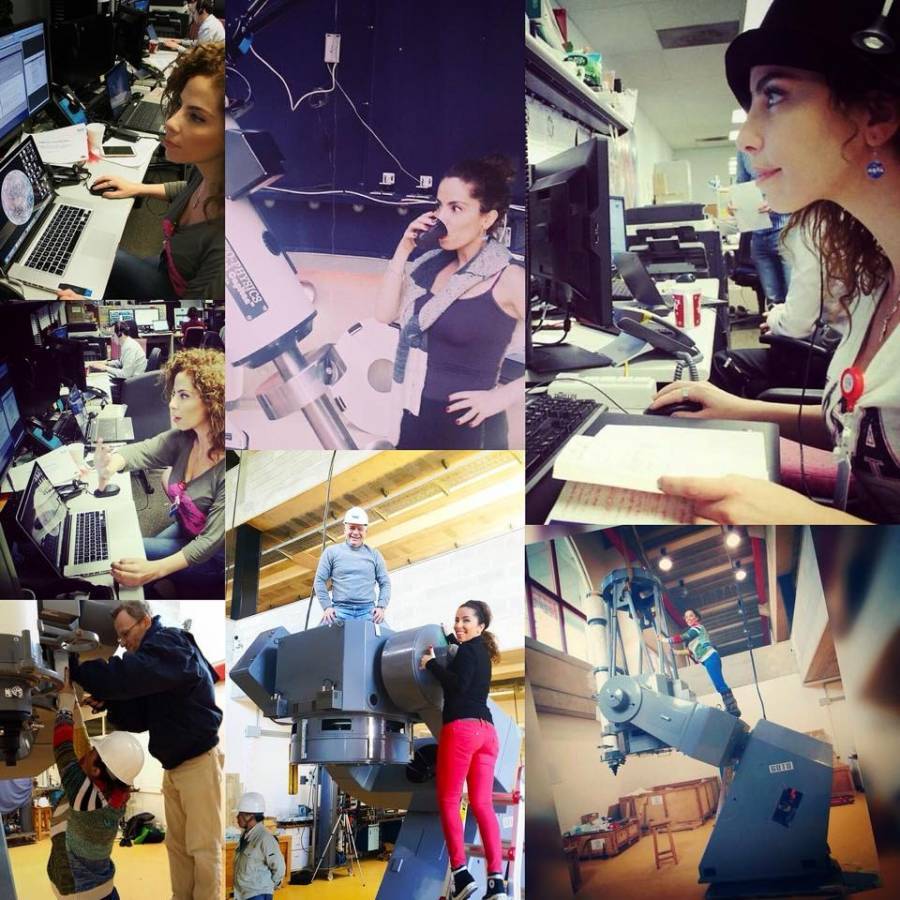
What comes after man reaching the moon? And what about the possibility of reaching Mars?
“We will soon sleep on the moon.” NASA has signed a $30 billion contract to build a village on the moon by 2024.
As for the possibility of reaching Mars, the scientific capabilities exist, but we need human capabilities, since the issue of lift off and landing takes about two years, which opens a debate about how much the brain can adapt to the new environment. In Hawaii, researchers tried to conduct an experiment that simulates going to Mars by asking some astronauts to live underground for 6 months, but the experiment failed.
What are the needs of astronauts and what do they take with them on their trips?
Astronauts are ultimately human beings and their needs inside the spacecraft are similar to the needs of any other human being, such as needing food to eat, water to drink, and showering, in addition to regular exercise, especially since the lack of gravity contributes to the loss of a lot of muscles, and they may suffer from osteoporosis as a result of being exposed to radiation.
It is worthy of note that during the flights, each astronaut brings with him/her something dear to his heart, like photos of family and children, toys, a book...
Is drinking alcohol allowed in space?
When Buzz Aldrin flew to space for the first time on the Apollo 11 flight, he took wine with him, but after that NASA decided to ban alcohol, amid fears that alcoholic drinks would affect the brain and the performance of astronauts. Whereas the Russian Space Agency encourages drinking cognac and considers it useful to strengthen the immune system.
Is sexual intercourse allowed in space?
Generally, intimate sexual relations are not allowed in space, but I cannot say for sure, since astronauts live with each other in a small room all the time, and the strange thing is that sex in space is a sort of a “taboo” subject, it is as if astronomers are required to make a vow of chastity and abstain from satisfying their needs.
What are the limits of man?
There are no limits for man as long as he is a living creature that lives and thinks, so he must continue to search for answers, and progress, and I believe that the limits of man are his humanity and they are what separates him from the animal world.
In your opinion, is there life beyond the surface of the Earth?
We may be selfish if we think that we are the only creatures living in the galaxy, but scientific research has not — up to this point — been able to find a definitive answer to the question of extraterrestrial life.
In conclusion, what are your favorite words of wisdom in life?
“Work for a better life as if you will live forever, and work for a better end (hereafter) as if you die tomorrow.” (Ali ibn Abi Talib).
Raseef22 is a not for profit entity. Our focus is on quality journalism. Every contribution to the NasRaseef membership goes directly towards journalism production. We stand independent, not accepting corporate sponsorships, sponsored content or political funding.
Support our mission to keep Raseef22 available to all readers by clicking here!
Interested in writing with us? Check our pitch process here!
